The Forest, My Home
a multi-media introduction to the place we live
Cayman Brac is an island, not like the other two. But first – the other two:
Grand Cayman is the biggest of the three islands, and it is urbanizing as fast as it can (by government policy, currently). The western part of Grand Cayman is already dominated by a large, sprawling, tree-less city. It is also noisy and smelly but we seem to tolerate that.
Residents of the other two islands love to hate Grand Cayman but in truth many of us love to visit there, if only for a day or two. It is very multi-cultural and until recently George Town was quite compact. But urban sprawl is covering all of Grand Cayman.
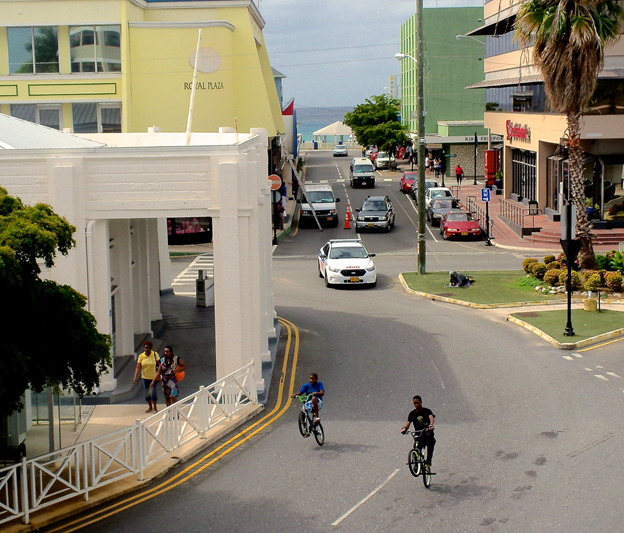
Little Cayman was almost deserted for a few decades, and is now home to the rich. They are mostly foreigners with a tendency to gentrify the place, but many Brac’ers
like to buy and build there too. It’s only six miles away. Luckily, many residents (and fly-in semi-residents) want to keep clean air, empty sea, and quiet beaches. They want to lead the languorous “natural” life even if some of the beaches have been planted with full-grown palm trees.
One low and wet area has gained international protection. A low, inland area in the east of the island deserves the same.
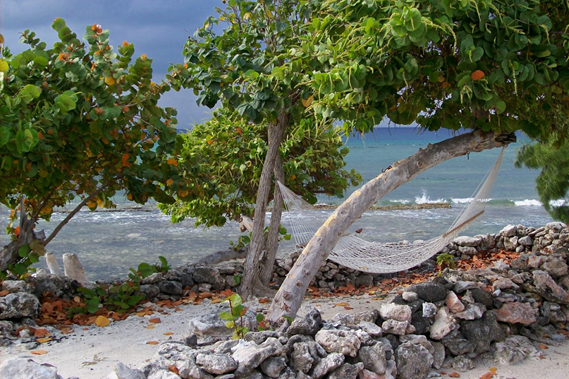
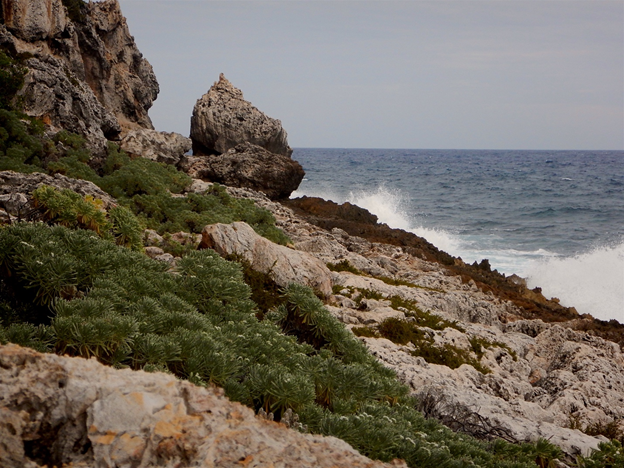
Cayman Brac is different – totally different. It is more Caymanian for one thing, and truly values its community spirit. It has more natural gifts, especially its dominant high terrain called the bluff, with caves connected in ancient times with sinkholes on the high plateau. The Brac has beaches, “ironshore”, lowlands and a massive vertical cliff all around except in the westernmost part.
On Cayman Brac there are modest homes in smaller communities spread along the coast, and lots of “bush” — beloved bush — not only in between the communities but within each one. We have two protected “old growth” forests. One hides 60 foot deep sinkholes and a hidden valley with treasures unknown… which is a good way to keep them. There are several tracts of land that can regain protection since they were bought under false circumstances and need to revert to the common good.
Together with the best public education in the country (it is integrated by social class, country of origin etc.) there is a strong community spirit on the Brac, with active service clubs and churches. These values make the Brac the best place to live, at least for the young and the old. The middle group sometimes leaves, to return later with improved skills and education.
“The bush” sustained Brac pioneers, along with the bounty of the sea, and the bush must be preserved for our culture and for the birds, iguanas and all creatures that call it home. The diversity of our plants is unparalleled in the world and all other life forms prosper here, including the modest human population. There’s too much property speculation and it’s getting worse, with hundreds of empty houses while new lots are cleared for more!
The singular distinction of Cayman Brac is this: On Cayman Brac, every girl, boy, man and woman can walk from home and explore “the bush”. Walk, not drive, from his or her home to a natural area and discover a brand new place — like Humboldt exploring the Americas but from our very own doorstep! We can still get lost, literally, and we must tread carefully for the bush is very rough. It’s a jungle out there – an exciting, natural sub-tropical forest jungle.
Our wild areas are spread all over, from shores to the base of the cliff to the high bluff edge. From there, one can peek through vines to the reefs and the trackless sea which surrounds us – no other land in sight and no mega yachts or other excesses.
Other types of bush are here too — secondary forest with butterflies by the number, and caves, sinkholes, even a “mountain”. (This term is exaggerated, for our island speech is known for irony and occasional hyperbole).
We must protect more of our greenery. It requires government action, in consultation with all the people on all three islands. A “PLAN” for the whole country is needed – the three islands must be viewed as a unit even if there are three components (three islands). One is the commercial island, one (the little one) can be the high rent “foreign” island since it is doing okay now, with that format. But the Brac must be seen as the “community” island – its focus being education, its development restrained and selective, its economy modest (local tourism for example). Its use as a source of raw material (limestone rock from its very foundation) must be ended. Like sticking military helicopters here, rock quarrying smacks too much of “The Brac — it’s just a rock anyway”. We could restrict housing and building to certain areas or “circles” on the map, leaving all else untouched; or we could designate larger “circles” as protected forest, and about 50 other circles as native woods, caves, ponds, sinkholes, forests, turtle “crawls”, beaches of course, a collapsed ceynote, beach rises, all of our cliffs, historic paths, the complete eastern headland, lagoons, special sites like the Mass Grave from the ’32 Storm, seascapes, beach access paths, the older church sites, all of our high bluff edge and trees, the base of the bluff all around the island …. This would become the island of choice for high-tech families, and perhaps small offices as corporate headquarters for financial companies: the quieter island, better integrated socially than the others … truly the jewel in the crown.
It is our basic human right to walk, explore and even get lost in our own tantalizing bush, until we find ourselves again, and come home to our small, tidy house on our timeless isle, shared with nature — Cayman Brac.
Jwp
For further reference, read on for a song and a poem, both about Cayman Brac:
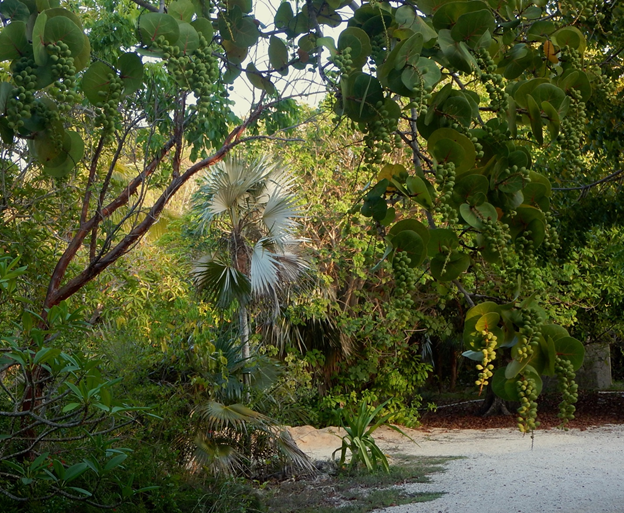
I’ll Be Coming Back
(composition for Cayman Brac)
©jwp June 21, 2007; © 2017 compact disc
Cayman Brac , Cayman Islands and world copyright
The candlewood song
Wild trees of Cayman Brac
Ironwood, Fiddlewood, Smokewood, Shakehand
Broadleaf, Calabash, Snakewood, Silver Thatch
Dogwood, Headache Bush, Buttonwood, Bull Hoof
Coconut, Tamarind, Plopnut, Mango
Pompera, Red Birch, Bitter Plum, Candlewood
Wild Cocoplum, Break Bone, Mastic, Plum
Sea Grape, Strawberry, Balsam, Spanish Elm
Boxwood, Yellow Sanders, Sweetwood, Cedar
Whitewood, Wild Tama-rind, Pepper Cinnamon
Bastard Mahogany, Jeremiah Bush
Bastard Strawberry, Poincianna, Royal Palm
Cherry, Wild Cinnamon, Silk Cotton Tree
Cabbage Tree, Fustic, Logwood, Ginep
Wild Fig, Wild Ginep, Wild Sapodilla
Plumeria, Manchineel, Naseberry, Wash Wood
These are the trees that sustained us of old
These are the trees that nourish our souls
They cooled us, calmed us, cured our ills
The great wild forest can do so still
© jwp 2012. May be sung as a rap
20210205
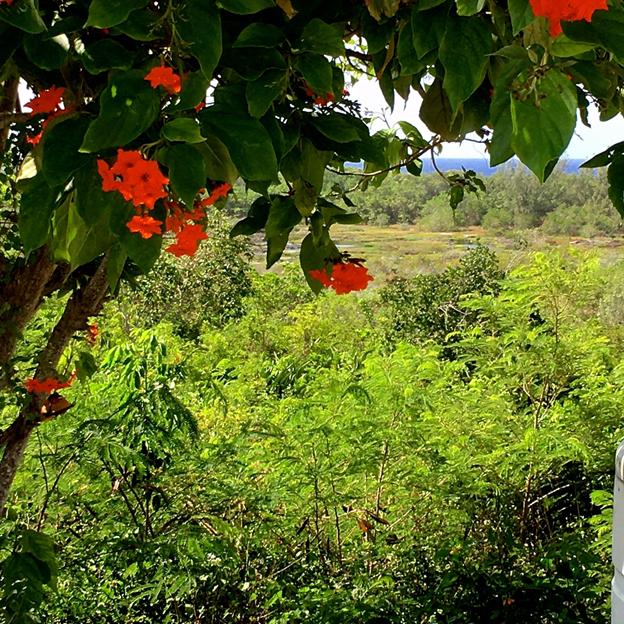
UPDATE NOW, stream of consciousness writing this day, March 30, 2021:
We Got Ourselves Into This Mess …
On April 22 this year I will burn 1/3 cup of gasoline, driving to plant trees to compensate for this amount of distillate of petroleum, petroleum laid down by the decomposition of eons worth of trees, ferns, early life forms from the primordial swamp which led eventually to — to us, the destroyers of life, the liberators of smothering carbon and its gases, now on a course to bring our sure destruction, though not of ALL of nature — just a lot of nature, including ourselves. We got ourselves into this mess.
I’ll burn no more gasoline than the amount of kerosene (coal oil) my forebears burned for their lamps and utilized to make and decipher written languages and exchange ideas, giving us the intellectual means —knowledge of facts and potentially the wit to use this knowledge— to decipher our world and expand our ken and our technologies and to create philosophies and political structures to reverse our pillaging ways, our extractive technologies, our self-aggrandizing, shallow and conceited instincts. And finally, if there’s time, to control the self-destructive passions and devote ourselves relentlessly to the restoration of the stability and permanence of Nature, that self-regulating, perfect system that kept the balance through the millennia of the hunter-gatherer system, when Man fitted in and reigned in his invasive and destructive side. Not wanting perhaps to stand out in his tribe.
There may be a shred of hope for survival and, if so, we can hope it will be as lovers of life — of music, poetry, goodwill, restraint in spawning babies — delight in untouched nature.
Blessings on this 1/3 cup of gasoline, please. I have a trunk full of seeds to rake into the old quarry, to allow it to revert to the Sylvan Hollow of my dreams.
jwp
20210330
“The Forest, My Home”
My latest composition, home-recorded by Vancouver pianist Stella Hui, now living in St. Johns Newfoundland
©jwp November 16,2020; Cayman Brac , Cayman Islands and world
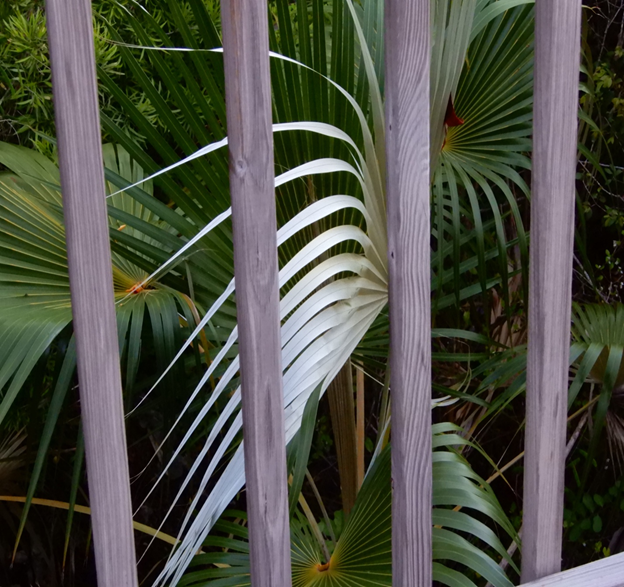
THE FOREST, MY POEM
Ashes to ashes, dust to dust, humus to humus
I’ll never know the forest well but here’s a fact
After the hurricane it sprang back without my act
The parrots ate birch berries from the ground and
With other observations from life’s college
I may come to know just how profound
Is my own lack of knowledge
First the bad news:
We take our earth for granted
We chop, bulldoze and impose our will
We make a permanent dent
Already we’ve prevented by our overkill
Recovery — at least of a natural world with us in it
Taxonomy today! Look up the scientific name
Of a plant “Thought to have been extirpated in the wild”
And you’ll find it. Not in the Amazon
Just “On Amazon… $49.95 includes shipping”
Ripped off to die. Greta warned us — I tried rhyme
We didn’t grab the rope in time
The earth’s our egg sack
But we’ve “et it up” and we emerge to die
In a landscape of sand
Or concrete, glass, oil and asphalt and
Materials made by man
Resins and many shapes fantastic
Plastic
But there’s a natural succession
Even in the ruin –Nature goes on and on
And thrives much better
When we’re gone
There is hope
We can act and make a small change
Kilmer was on the right track; fools for sure
To find the root cause look for Man
To find the cure, look to the roots
Look to the mycelium
Salvation will come in the mountains
From a cottonwood clone in the scree
And in the hot dry places on earth
From the acacia tree
Will the hawk sit down with the dove?
“The wolf and the lamb shall feed together”
Will the Baldpate in yonder ancient tree
Sit quiet, with Kingbird nearby?
But now, my love awaits
At the end of my woodsy walk
Where my home floats in the air
With a bench for quiet talk
We’ll climb to our high deck
Where skies are dark tonight
We may catch sight of a zodiacal sign
Crossed by a meteorite
Sing it like a dream, walk the shore together
Evermore
I’ll be in my home part of this biome
Our home set in the forest
Evermore
JWP
July 11, 2021
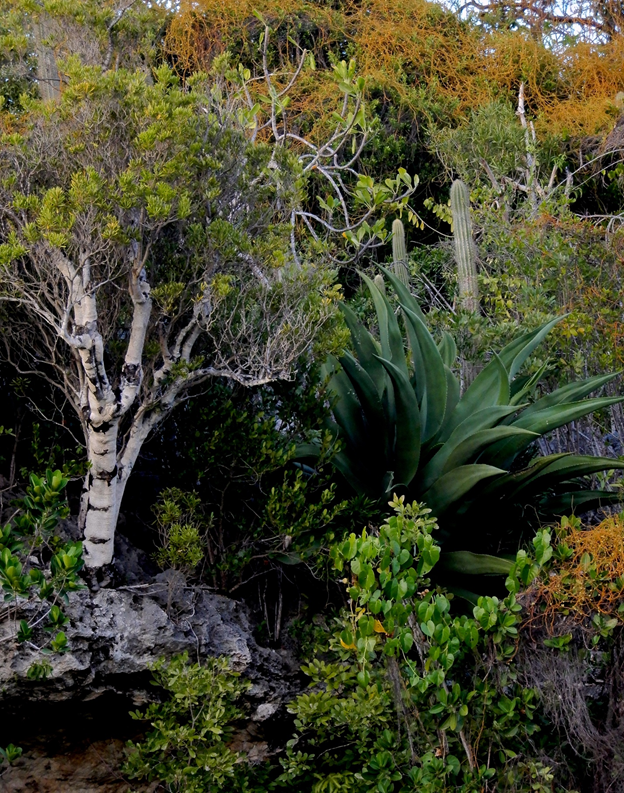
In Praise of Idleness in old age
(Sitting in the shade under our stilt house)
The airfoil (my house)
Augments the breeze
I take my vows
Earth to please
Just do less!
The gift of old age
To let go of stress
Become a sage
Stop running around
And causing distress
Don’t do any more
From now on, do less
From constant action
Like flighty elf
Adopt elder fashion
Rest yourself
There’s shade for our faces
The Earth heaves a sigh
Just now it’s in stasis
It’ll boil bye and bye
If you can’t plant trees
Re-wilding the green
Go slow or cease
To be heard or be seen
The sun heats the trees
The air shimmers
Scarce any breeze
The last dewdrop glimmers
Just pause by your trees
And contemplate
The birds and the bees
And Nature’s estate
Jwp
Cayman Brac
Sept. 18, 2021
“Wallabye”
my signature composition. Named by our daughter, played by me and recorded on Grand Cayman.
©jwp April 8,1996; Cayman Brac , Cayman Islands and the world.
Thank you for visiting The Forest, Our Home
JW Platts
Cayman Brac
www.naturenotes19N79W.ky
